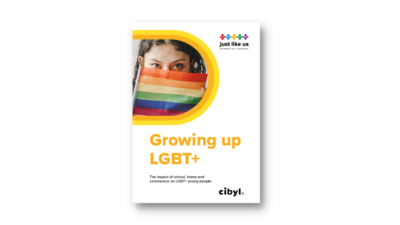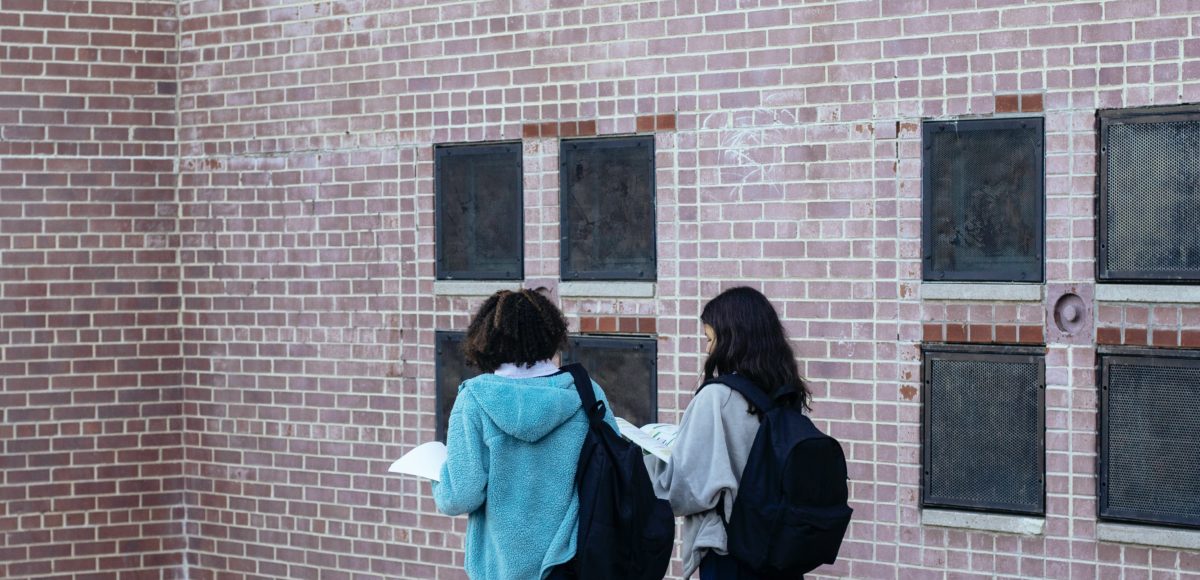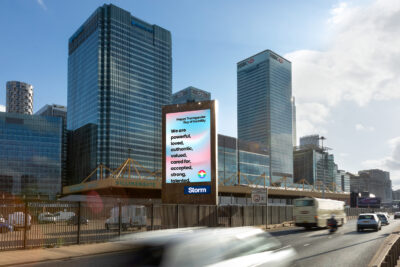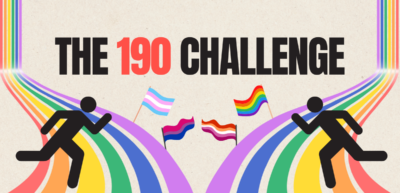
LGBT+ pupils on free school meals struggle more with mental health, research finds
News

Secondary school pupils who are eligible for free school meals and LGBT+ (lesbian, gay, bisexual, trans) are facing disproportionate mental health crises, new independent research by Just Like Us has found.
Pupils eligible for free school meals are also facing significantly more tension at home during lockdown, and those who are also LGBT+ are even more impacted, according to Just Like Us’ independent research.
One in four (26%) secondary school pupils eligible for free school meals is experiencing daily tensions in the place they’re living, such as arguments with family, compared to 16% of secondary school pupils not eligible for free school meals.
One in three (34%) pupils who are both eligible for free school meals and LGBT+ are facing daily tensions at home, suggesting further minoritised pupils face increased challenges.
Pupils eligible for free school meals are twice as likely to have alcohol or drug dependence (6% compared to 3%). However, LGBT+ pupils eligible for free school meals are three times more likely (9%) to struggle with alcohol or drug dependence.
Pupils eligible for free school meals are more likely to be feeling lonely and separated from the people they’re closest to on a daily basis (44% compared to 36% of those not eligible). The statistics are graver for pupils eligible for free school meals who are also LGBT+ (61%).
Pupils eligible for free school meals are more likely to report their mental health getting worse since the pandemic began (62% compared to 56% of pupils not eligible), and this is significantly worse for pupils who eligible for free school meals and are also LGBT+ (75%).
In addition, pupils eligible for free schools are more likely to be worrying daily about the state for their mental health (45% compared to 35% who aren’t eligible). This rockets to 64% for pupils eligible for free school meals who are also LGBT+.
The survey of 2,934 secondary school pupils (1,140 of whom were LGBT+ and 486 said they are eligible for means-tested funding) by Just Like Us, the LGBT+ young people’s charity, found that 55% of LGBT+ 11 to 18 year olds are worrying daily about their mental health, compared to just 26% of their non-LGBT+ peers.
The data forms part of a larger report, Growing Up LGBT+, into inclusive education and the experiences of LGBT+ young people published by Just Like Us.
Dominic Arnall, Chief Executive of Just Like Us says: “We are really concerned by the findings from our research, which shows that secondary school pupils who are LGBT+ and eligible for free school meals are facing significantly higher rates of mental health struggles. It’s clear from our research that the impact of coronavirus and lockdowns have not fallen evenly.
“We know that LGBT+ young people generally are twice as likely to feel lonely and more than twice as likely to worry for their mental health on a daily basis during the pandemic than their non-LGBT+ peers.
“LGBT+ young people who are eligible for free school meals are having to cope with multiple challenges during the pandemic and we see this reflected in the data – we are really concerned for these vulnerable young people and at Just Like Us we know how important it is that LGBT+ young people get positive messaging and support about being themselves at school and at home.
“If young people feel safe and welcome at school and know they can be themselves, they are more likely to feel able to ask for support during this difficult time.
“We know this is a very difficult time for everyone and it’s also important that the burden doesn’t fall on school staff who are already under immense pressure – that’s why Just Like Us is here to help and we have free educational resources available to support you.”
Childline on this ‘particularly hard’ time for LGBT+ young people
Childline’s Service Head, Wendy Robinson, says: “We know it’s been a very difficult time for young people, with Childline delivering more than 61,000 counselling sessions about mental health and emotional wellbeing since lockdown measures were introduced last year. “The increased pressure and time spent in the home can be particularly hard for LGBT+ young people who may have felt cut off from their usual support networks and friends.
“Childline is available for all young people to contact about any concern or worry, while our message boards allow them to discuss their problems safely with peers in a similar situation.”
Just Like Us is proud to consult with the NSPCC on all our procedures around working with young people.
Are you a young person who needs support?
If you’ve been affected by this news and need help or support, please call Childline on 0800 1111 or visit www.childline.org.uk.

